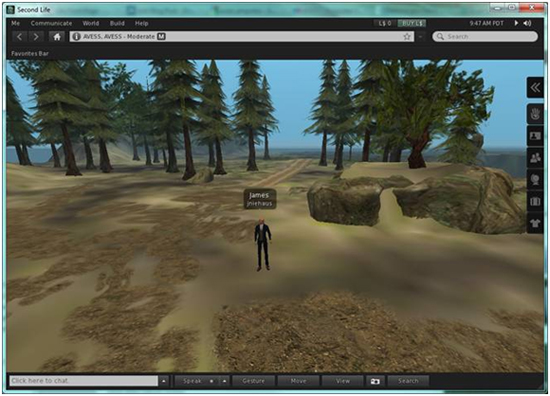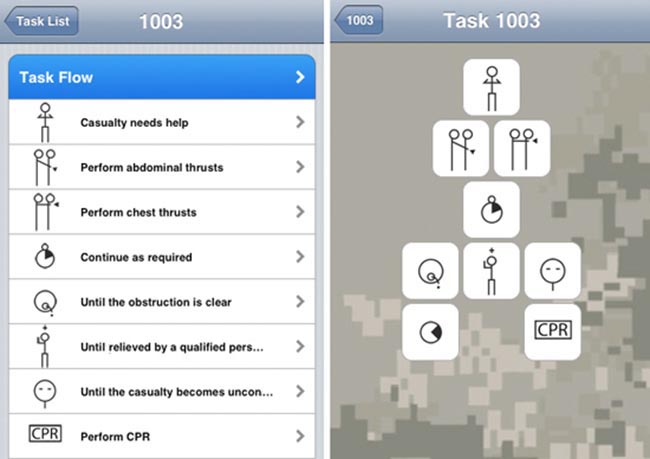Charles River Analytics, a developer of intelligent system solutions, announces new contracts in the field of healthcare support and training, an area into which Charles River has recently expanded its cutting-edge research and development efforts. These contracts include two surgical training systems, a first-aid training framework, and artificial intelligent enhancements for recovering amputees. Through this research, Charles River aims to improve surgeons’ skills and reduce patients’ recovery times.
Charles River’s most recent healthcare support contract is a Laparoscopic Surgery Training System (LASTS), sponsored by the Office of Naval Research (ONR). LASTS will help military surgeons returning from deployment to refresh their laparoscopic surgery (LS) skills as quickly as possible. LS is a type of minimally invasive surgery performed in the abdomen, with a shorter recovery time than traditional surgeries. However, LS presents unique challenges and requires unique skills, including motor, spatial, and decision making skills. In LASTS, Charles River is modeling how these surgical skills are learned and forgotten by surgeons, to develop training systems and refresher courses that improve the efficiency of acquiring skills and maximize the retention of those learned skills. Charles River is also modeling how to assess surgical skills objectively to improve the consistency and reliability of training.
Dr. Peter Weyhrauch, Principal Scientist at Charles River, said, “Both surgeons and patients can benefit from LASTS. Surgeons will have more reliable, efficient, targeted, and less costly training, which leads to better overall surgical proficiency. As a result, patients will have fewer complications, better results, and higher quality of care.”
Charles River is creating training tools for the US Army to improve the retention of battlefield first-aid skills in PROMPTER (Pictorial Representations of Medical Procedures to Train for Effective Recall). Within PROMPTER, critical first-aid skills are represented using simple, intuitive symbols that represent first-aid actions or emergency medical procedures. These symbols are then incorporated within a framework that facilitates better long-term memorization of the first-aid procedures. These memorization aids are presented to Soldiers through adaptive microgames that provide an engaging gameplay experience continually tailored to a Soldier’s individual skills and training needs. Charles River is making these games available to Soldiers through smartphone apps and web browsers so they can log-in and play from any location.
Symbols for a Task Flow in PROMPTER as displayed on an IPhone app
Charles River is incorporating haptics, or perception based on touch, into its simulation-based medical training solutions with HAMS (Haptics in Medical Simulation). HAMS produces improved haptics for virtual medical simulations that enable trainees to practice medical procedures using advanced physical simulations of human anatomy. HAMS takes advantage of differences between the actual forces created by touch and the sensations perceived by doctors. HAMS improves the experienced perception of force and thereby increases the training benefit of the simulation. It also removes unnecessary and expensive calculations, resulting in less expensive systems. These enhanced virtual environments provide realistic situations for doctors in training to hone their skills and can ultimately save lives.
Charles River is addressing Veteran psychological health in HAVEN (Helping Amputees through Virtual Environments). HAVEN aims to help Veterans recovering from traumatic amputation. It focuses on enhancing the peer support system, which can significantly improve recovery, through a 3D virtual multiplayer environment. HAVEN uses artificial intelligence (AI)-controlled virtual characters to promote immersion and interaction within these environments. With HAVEN, Charles River is extending its medical support for the military beyond the battlefield to recovering Veterans back home.

Veterans use AI-controlled virtual characters 3D environments in HAVEN
Dr. Weyhrauch said, “We expect the Department of Defense (DoD) may benefit from our efforts, as it employs many surgeons, combat medics, and support personnel to care for our injured Warfighters and Veterans.”
This material is based upon work supported by the United States Navy under Contract No. N00014-11-C-0426, the US Army Aeromedical Research Laboratory under Contract No. W81XWH-09-C-0049, and the US Army Medical Research and Materiel Command under Contract Nos. W81XWH-11-C-0074 and W81XWH-11-C-0489. Any opinions, findings and conclusions or recommendations expressed in this material are those of the author(s) and do not necessarily reflect the views of The United States Navy or the United States Army.

